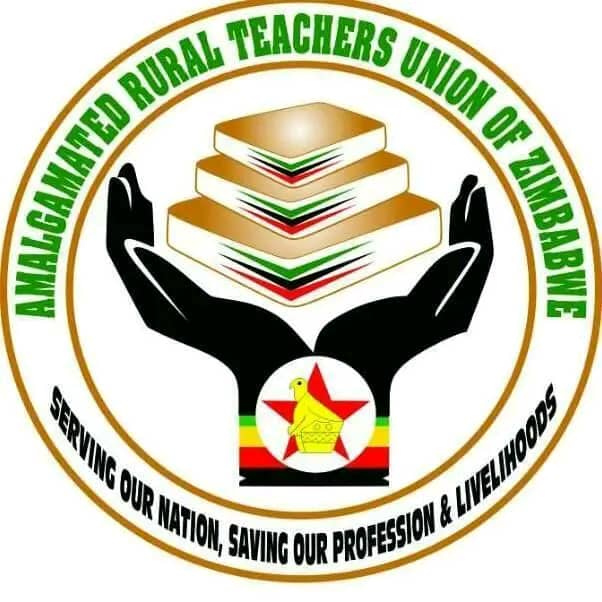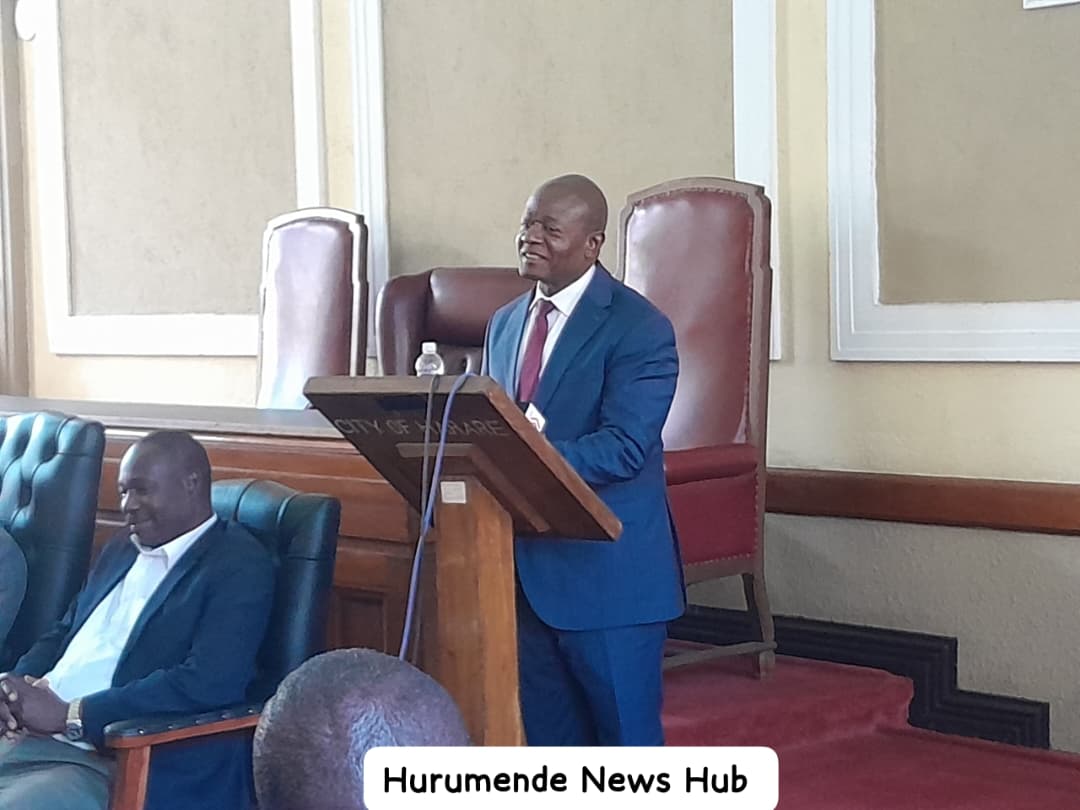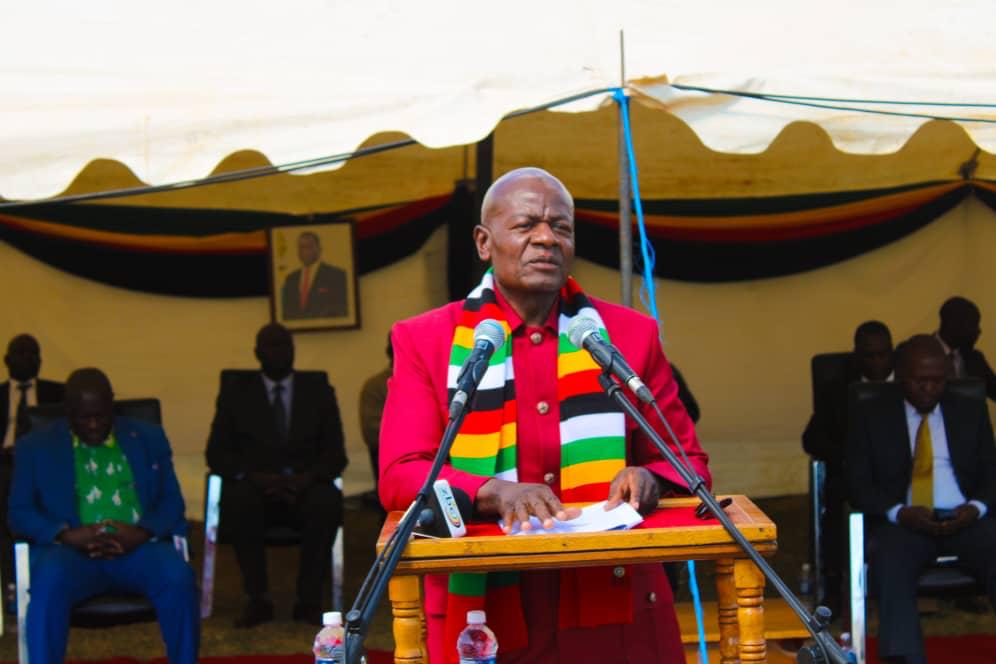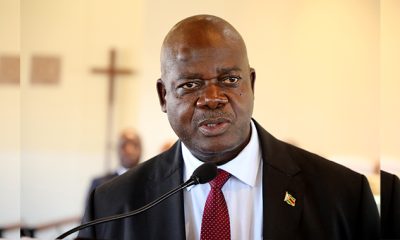Current Affairs
ARTUZ Urges Action After Govt Backs School Equalisation Fund

The Amalgamated Rural Teachers Union of Zimbabwe (ARTUZ) applauded the Ministry of Primary and Secondary Education for publicly supporting the proposed Education Equalisation Fund, a move the union describes as a long-overdue step toward addressing deep-rooted inequalities in the country’s education system.
According to the Amalgamated Rural Teachers Union of Zimbabwe statement children often learn in overcrowded and crumbling classrooms, lacking basic teaching tools, textbooks, and access to safe sanitation facilities. ARTUZ argues that years of chronic underfunding have denied these students their constitutional right to quality basic education.
“We are therefore pleased that the Ministry’s spokesperson has acknowledged the proposal for a mineral levy to fund school development as a viable and necessary path forward. This is a clear validation of ARTUZ’s long-standing demand for an equitable education financing framework that leaves no child or teacher behind,” said the ARTUZ statement.
The union has long campaigned against the harsh conditions many rural learners endure ranging from decaying infrastructure and inadequate resources to poorly equipped classrooms. ARTUZ says these challenges have resulted in unequal access to education, both in learning conditions and future opportunities.
“However, as we celebrate this policy convergence”, ARTUZ emphasizes that the implementation model of the fund must be transparent, inclusive, and accountable. It must not be reduced to political rhetoric or elite capture.
Recently, a Ministry spokesperson announced that the government is considering introducing a mineral levy to generate funding for this initiative an idea ARTUZ has advocated for years. The union considers the proposal both practical and essential to reversing the neglect of rural education.
However, ARTUZ cautions that verbal commitments must be matched by action. The union insists that the Equalisation Fund must be implemented with full transparency and accountability, with robust systems in place to prevent misuse and ensure that resources reach the intended beneficiaries.
ARTUZ warns that the fund must avoid the pitfalls of centralised control and elite capture, which could see wealthier or urban regions benefiting disproportionately. Instead, decision-making must include rural voices and reflect their needs on the ground.
To support this, the union is preparing a comprehensive proposal detailing how the fund should be structured and managed. This includes practical recommendations on revenue generation such as the mineral levy and oversight mechanisms to monitor spending, prevent corruption, and ensure direct support to under-resourced schools.
This development comes amid ongoing crises in Zimbabwe’s education sector. ARTUZ has released data indicating that poverty remains a major barrier to access, with many children dropping out due to unaffordable fees, a lack of learning materials, and crumbling infrastructure.
Government initiatives like the Basic Education Assistance Module (BEAM), intended to support vulnerable learners, often suffer from delays and insufficient funding leaving many children without support.
“The key test will be whether policy translates into real-world change. Will legislation be enacted to establish the Equalisation Fund, will the mineral levy be properly implemented and funds fairly distributed, will independent oversight ensure improvements actually reach the rural classrooms most in need,” the ARTUZ added.
For ARTUZ, the message is simple education is a right, not a privilege. Every learner deserves a safe environment and every teacher the resources to teach effectively. While the Ministry’s endorsement marks potential progress, only tangible improvements in rural schools will show whether the government’s promises are genuine.
Current Affairs
Minister Garwe: Housing solutions for War Veterans and Youths in 2026

2026 a year of Brick by Brick
Itai Mazire
The Ministry of Local Government has taken significant strides in 2025 to provide housing units for thousands of war veterans and youths. This initiative is poised to transform lives and foster sustainable communities across the nation.
Under the leadership of Minister Daniel Garwe, the ministry has prioritized housing as a fundamental human right, recognizing the sacrifices made by war veterans and the potential of the youth to contribute to national development. “We owe it to our heroes and the next generation to ensure they have access to secure, affordable housing,” Garwe stated. “This initiative is not just about building homes; it’s about building futures.”
In a collaborative effort with both public and private sectors, the ministry has launched several housing projects aimed at fast-tracking the construction of affordable units. “By working together with various partners, we are accelerating our housing delivery mechanisms to meet the urgent needs of these communities,” Garwe explained.
The impact of this housing initiative is already evident, as hundreds of families are now moving into newly constructed homes designed to provide modern amenities while being cost-effective. “This project signifies hope and stability for many; it’s a step towards restoring dignity for our veterans and empowering our youth,” he added.
Moreover, the ministry’s approach includes providing support services, such as financial literacy programs and job training, to ensure that beneficiaries can sustain their new living environments. “We want to ensure that these housing solutions translate into real opportunities for growth and self-sufficiency,” Garwe emphasized.
The Ministry of Local Government continues to uphold its commitment to social justice and economic empowerment, it is setting a precedent for future housing policies. With unwavering determination, the ministry is not only addressing immediate housing needs but also fostering a spirit of community resilience and solidarity for 2025 and beyond.
Current Affairs
Championing Service Delivery and Housing Development Ahead of Year-End – Minister Garwe

Itai Mazire
As the year draws to a close, Honourable Daniel Garwe, Minister of Local Government and Public Works, has emerged as a transformative force in local governance.
Under his stewardship, the ministry has made significant strides in implementing service delivery standards, with the focus now shifting to the ambitious Minimum Service Delivery Standards 2 (MSDS2).
Honourable Garwe said recent developments have addressed key areas of community concern, notably efficient refuse collection and enhanced water services in Harare. “We have worked tirelessly to improve service delivery; our residents deserve reliable and consistent access to essential services.”
A hallmark of Honourable Garwe’s tenure has been fostering collaboration between local authorities, bringing together councillors from the ruling party and the opposition to work in harmony.
“Uniting our local governance structures is crucial. It is about serving our communities collectively, and together we can effectively address the challenges they face,” said Honourable Garwe.
The enhancement of traditional leadership roles has also been a focal point.
“Traditional leaders are vital to our society. By uplifting their roles, we are ensuring that community voices are heard and integrated into our decision-making processes.”
The introduction of the Minimum Service Delivery Standards (MSDS) has set a new precedent, making quality service provision an expectation for residents.
“We are proud of our successful implementation of the first set of delivery standards, and the upcoming MSDS2 will further elevate the quality of life for all citizens,” he said.
In an effort to empower young people and honour veterans of the liberation struggle, the ministry is developing housing stands aimed at creating equitable opportunities. “It is our responsibility to ensure that the youth and veterans have the chance to secure a future through home ownership,” said Honourable Garwe.
He said the importance of private sector participation in enhancing service delivery has played a significant role. “Collaboration with the private sector is essential if we want to bring innovation and efficiency into our local authorities,” said Honourable Garwe.
As 2025 ends, Honourable Garwe’s initiatives reflect a commitment not just to improvement, but to a comprehensive approach to urban management and community welfare.
“Our vision is clear: a united, functioning local government that prioritises every citizen. We are just getting started.”
Current Affairs
One Feared Dead After Vehicle Plunges into Mukuvisi River

Harare — One person is feared dead after a Toyota D4D truck plunged into the Mukuvisi River near the Trabablas Interchange today.
The incident occurred during what was reportedly a routine drive, which suddenly turned tragic when the vehicle veered off the road and landed in the river. Emergency services attended the scene, while investigations into the cause of the accident are ongoing.
More details to Follow:
-

 Current Affairs1 month ago
Current Affairs1 month agoOperation restore order
-

 Crime and Courts3 months ago
Crime and Courts3 months agoMasasi High School Abuse Scandal Sparks Public Outcry
-

 Crime and Courts3 months ago
Crime and Courts3 months agoKuwadzana Man Jailed for Reckless Driving and Driving Without a Licence
-

 Current Affairs5 months ago
Current Affairs5 months agoBreaking: ZIMSEC June 2025 Exam Results Now Available Online
-

 Current Affairs4 months ago
Current Affairs4 months agoMunhumutapa Day: Zimbabwe’s Newest Public Holiday Set for Annual Observance
-

 Current Affairs3 months ago
Current Affairs3 months agoBREAKING NEWS: ZANU PF Director General Ezekiel Zabanyana Fired
-

 Current Affairs4 months ago
Current Affairs4 months agoNo Racism in Our Cricket: Government
-

 Current Affairs4 months ago
Current Affairs4 months agoGovernment Bans Tinted Car Windows in Nationwide Crime Crackdown







